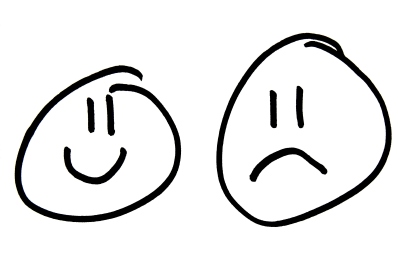
A friend and I recently joked about how discouraging it would be if Facebook had an online timer located at the top right-hand corner of the screen to keep track of how many minutes we spend scrolling through our newsfeeds every day.
It’s a frightening thought.
I think it’s fair to say that more than a few of us would be quite surprised to discover how much time we truly spend in Faceworld.
Even when I try to limit myself, I still manage to log a few hours daily: eleven minutes here, another seven there until, before I know it, I’ve accumulated an hour and a half online. If I don’t restrict my use, I can easily log another couple of hours on top of that, at the very least.
It’s too much.
I almost forget what I used to do with my free time, in the olden days, before social media.
God knows, over the past decade, my life in the real world has only gotten bigger, louder, crazier, more chaotic, laborious, time-consuming, demanding, and taxing on absolutely every single level imaginable, so how I manage to find any time to do anything other than what’s right in front of me is a mystery. It’s next to impossible to manage two existences at once.
But I do it.
And I’m not alone.
Many of us straddle these two worlds, occupy two separate lives, to some degree or another.
On a daily basis, we navigate a virtual reality that operates in symbiosis with our own, and coexist in a strange sort of superposition—here, in the real world, and online, in Faceworld, at the exact same time. When we focus our attention on one reality, the other collapses, in a manner of speaking. For me, on a personal level, it boils down to this:
The more I interact with one world, the less I connect to the other.
I spent last summer, in its entirety, in the real world. Outside in the garden. Barefoot in the sunshine, knee-deep in earth with the plants and worms, listening to the song of birds overhead, I gulped down the peace and quiet like cool water from a freshwater spring, and experienced a few golden moments of divine grace, impossible to articulate, but striking in its ability to make everything impossibly clear.
I gave nary a thought to Faceworld, to be honest, for months on end, so consumed by the real world I was. But now, in the dead of winter, those days are oh-so-far-away, and I feel compelled to check repeatedly on the state of both worlds, because it’s such a mind-blowing mess. America’s future lies in the hands of a madman. Folks are scared, confused, and angry, no doubt, but mostly, overwhelmed, since it’s no easy feat to protect and keep loved ones safe, healthy, and whole, in times such as these.
I’m distracted, unable to concentrate, fidgety.
I want to help, but I’m no help to anyone when I’m like this, all wound up, jacked up, and on edge. I’m confused, angry, scared, and the only thing I know for sure is that, if I listen carefully, I can hear my body, mind, and spirit tell me it’s time to unplug, get grounded again, and recharge.
Unplug to recharge.
I need to get some writing done, spend some time in the real world doing some real-life things, and take a break from the drama of Faceworld. To be honest, I’ve only got the energy for one world these days, so I’ve got to limit my time on social media and focus my attention where it really counts.
If I’ve got any gifts to offer, they’re useless, unless I actually intend to use them.
And I most certainly do.
So, for the foreseeable future, I will be abstaining from Facebook all day-every day until the SUPER HAPPY FUNTIME HOUR, which will be nightly from 8:00-9:00 p.m.
Maybe I’ll see you there!
Stay fierce.
(Facebook photo courtesy of http://www.pcmag.com)
